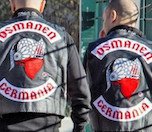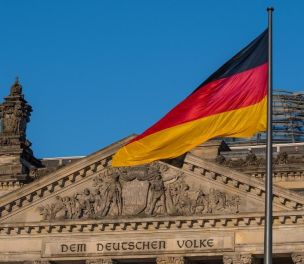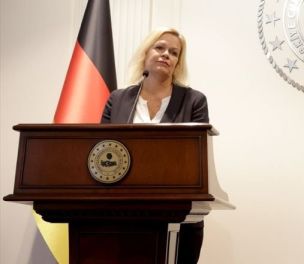Photo: Erdoğan's visit to Berlin in 2020/HellasJournal
Click to read the article in Turkish
Reportedly, a consensus could not be reached during talks between Scholz's Foreign Policy Adviser, Jens Plötner, and Erdoğan's presidential spokesperson İbrahim Kalın on the content and timing of the visit. Furthermore, the recent appearance of AKP MP Mustafa Açıkgöz in Neuss was to be publicly criticized by Berlin, which Ankara would not accept.
On January 16, The Foreign Ministry of Germany summoned the Ambassador of Türkiye in Berlin after images leaked of a speech by Açıkgöz.
Açıkgöz called for the "annihilation" of supporters of the outlawed Kurdish Workers' Party (PKK) and the Gülen movement, an organization alleged to have carried out 2016's failed putsch, often referred to as FETÖ in Türkiye.
"Like in Türkiye, we will not give them the right to live in Germany. No matter to where they escape in the world, we will end the terrorist organization called PKK, the terrorist organization called FETÖ," Açıkgöz declared at an event organized by the "Germany Democratic Idealist Turkish Associations Federation," a grouping close to AKP's coalition partner the Nationalist Movement Party (MHP).
Germany's domestic intelligence agency (BfV) assigned the association where the AKP MP his speech as a threat to domestic security.
The Ambassador of Türkiye to Germany was reminded that "there was no place for provocation or hate speech in Germany" and that "Ankara was warned" that such cases should not be repeated.
Türkiye's domestic politics trouble Germany
As elections approach in Türkiye, which are normally scheduled for June 18 but may be held a month earlier on May 14, disputes in Türkiye's domestic politics "are also brought to here," and 'dissident' journalists from Türkiye are being "followed and intimidated" in Germany BfV's president Thomas Haldenwang, stated last month.
Election times in Türkiye have created conflict in Germany before. Around 3.4 percent of the country's population has an immigration background linked to Türkiye. This group represents around 5 percent of Türkiye's overall electorate.
In Türkiye's 2018 snap elections, roughly half of them cast their ballots, with most of them supporting current sitting President Erdoğan.
According to 2017 legal regulations in Germany, politicians from countries outside the European Union (EU) are not allowed to hold election rallies and events in Germany three months before the election date. Nonetheless, BfV noted that some "election brochures" were found. (WM)




.jpg)


